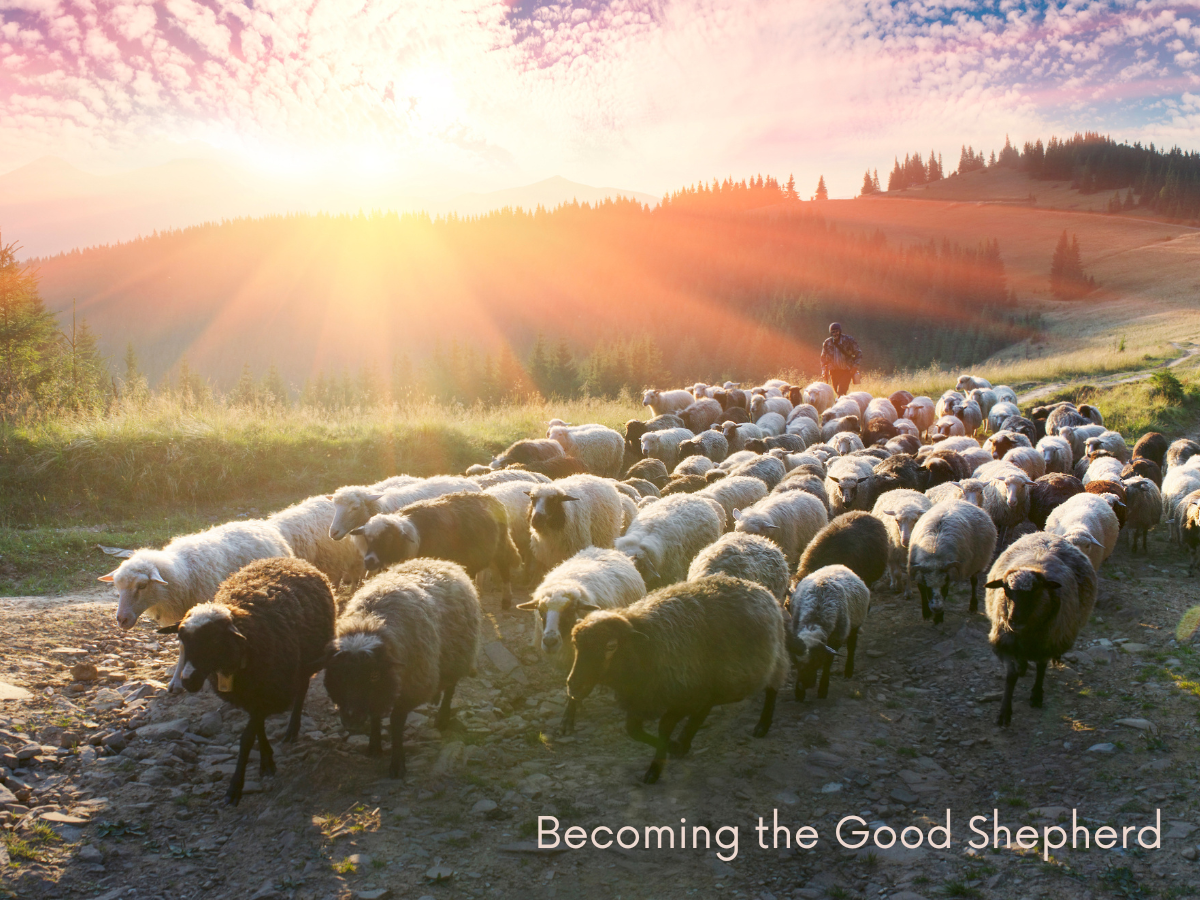Sunday, May 5, 2024 - John 15:9-17 Also Acts 10:44-48, Psalm 98, 1 John 5:1-6 It’s not fun to feel…
Shining Like the Sun
Sunday, Feb. 11, 2024 – Mark 9:2-9, 2 Kings 2:1-12, Psalm 50:1-6, 2 Corinthians 4:3-6
Last week, I talked about what it must have been like to be near Jesus. To directly experience that pure love of God. We can’t know in our current day what it was like to walk with Jesus, because he’s no longer walking among us on the earth. But we know that the communities of early Christians that followed in Jesus’ footsteps and gathered in his name did so because they experienced Christ as still alive within their midst even after he was gone.
In fact, the reason that Paul preached to people in places like Corinth and Rome was because he’d had a visionary experience of Jesus while he was on the road to Damascus, on his way to arrest and persecute Christians. He had a life-changing encounter with the light of Christ and he was never the same. The book of Acts, chapter 9 says,
Now as he was going along and approaching Damascus, suddenly a light from heaven flashed around him. He fell to the ground and heard a voice saying to him, ‘Saul, Saul, why do you persecute me?’ He asked, ‘Who are you, Lord?’ The reply came, ‘I am Jesus, whom you are persecuting. But get up and enter the city, and you will be told what you are to do.’ The men who were traveling with him stood speechless because they heard the voice but saw no one. Saul got up from the ground, and though his eyes were open, he could see nothing;[a] so they led him by the hand and brought him into Damascus. For three days he was without sight and neither ate nor drank.
Later, the scales fell from his eyes, he was healed and his sight was restored. But we might say his vision had completely changed.
Paul and the disciples in our gospel reading today had what we call a religious or mystical experience. In recent decades, several psychologists have studied these kinds of experiences, and they’ve found that people often say similar things about them.
- They feel that everything is a unity, nothing is separate
- They’ll describe a sense of timelessness and spacelessness
- They may have feelings of blessedness
- They might experience a kind of inner knowing, meaning that the experience holds authority for them
- The experience may have aspects that are paradoxical, when two opposite things can both be true.
- Often, they feel they can’t really put into words what happened, the experience is “ineffable.”
When an experience is indescribable, when normal words just can’t capture the meaning of the experience, we go looking for ideas or metaphors we can use that we know people will understand. And that’s exactly what Mark does in his relating of this story of the transfiguration of Jesus. He digs deep into his Jewish tradition to find ways to connect the meaning of Jesus to what his readers already understand.
There are so many rich symbols in this story. There’s the mountain, the cloud, the voice from heaven, clothes that are dazzling white, and shining light. For Mark’s original readers, the cloud covered mountain and the voice of God would have connected them to God speaking to Moses at Mt. Sinai.
We see Jesus’ clothes turn a dazzling white, “such as no one on earth could bleach them.” Meaning this is nothing mundane or normal, this is heavenly stuff we’re talking about. White clothes are connected to cleanliness and purity, and also to light. Light is always associated with God – God says “let there be light” at creation and in 1 John we read that “God is light, and in him is no darkness at all.”
On this mountaintop, Jesus is also joined by Moses and Elijah, probably the two most significant figures in Israel’s history. They represent the law and the prophets. But this voice from heaven identifies Jesus as the Beloved Son of God – meaning that Jesus is even more significant to Mark than those two key figures. In other words, Mark pulls out all the stops to impress upon his readers just how life-changing and important this person of Jesus is.
In this passage, the disciples all see the vision and hear the voice of God. How did they react? Peter wants to build booths or shelters for Jesus, Moses, and Elijah. Which seems a bit odd, don’t you think? Our text says that the disciples didn’t know what to say, because they were terrified. Can we blame them? So even though Peter’s offer seems kind of silly, we might have some sympathy for him.
When we read about visions like this in the Bible, it’s easy for us to think of it in tame terms. Maybe we kind of yawn and then just move along. Maybe we just dismiss them entirely. But think how earth shattering such a vision would be if it happened to us. There are accounts all through history of incredible encounters with God and Jesus recorded in the writings of those who we now call mystics. Hildegard of Bingen, Julian of Norwich, Meister Eckhart. One of my favorites happened to Thomas Merton, a Kentucky-based Trappist monk who only died in 1968. A writer named Lori Erickson describes Merton’s most famous experience this way:
“On March 18, 1958, Thomas Merton was running errands in downtown Louisville when he had an experience that would change his life and influence countless others. The spot is marked with a historical marker, the only one that I know of in the United States that marks a mystical experience.” She goes on to quote from Merton himself.
In Louisville, at the corner of Fourth and Walnut, in the center of the shopping district, I was suddenly overwhelmed with the realization that I loved all those people, that they were mine and I theirs, that we could not be alien to one another even though we were total strangers. It was like waking from a dream of separateness, of spurious self-isolation in a special world, the world of renunciation and supposed holiness [here he’s referring to the monastery]…
This sense of liberation from an illusory difference was such a relief and such a joy to me that I almost laughed out loud… I have the immense joy of being man, a member of a race in which God Himself became incarnate. As if the sorrows and stupidities of the human condition could overwhelm me, now I realize what we all are. And if only everybody could realize this! But it cannot be explained. There is no way of telling people that they are all walking around shining like the sun.
Religious or mystical experiences didn’t stop with John’s Revelation. People have been having heart-stopping encounters with the Holy One in every year since that last book of our Bible was written. Most people are afraid to talk about them for fear of being labeled crazy. But they happen. And these experiences usually either terrify us or fascinate us. Either way, they spark awe.
Clearly, Peter was terrified, and maybe mystified. He didn’t know what to do or how to react. But his offer to build dwellings, I think, also shows our natural human tendency to want to hold onto our mountaintop experiences. When we are lifted above our day to day lives in such a meaningful way, we don’t want that feeling to stop. We want to hold onto it forever.
But just as the risen Jesus tells Mary Magdalene in the Gospel of John that she shouldn’t cling to him, normal life goes on after mountaintop experiences. Jesus and his friends go back down the mountain and return to the tasks in front of them. As the Buddhists say, we may have become enlightened, but we still have to “chop wood and carry water.” Life becomes normal again. Religious experiences may not always change the world around us. But they do always change the world inside of us. As with Paul, they can change everything about the way we see the world and turn us completely around.
In Merton’s telling of his experience in Louisville, after he says he saw everyone around him “shining like the sun,” he goes on to say:
Then it was as if I suddenly saw the secret beauty of their hearts, the depths of their hearts, where neither sin nor desire nor self-knowledge can reach, the core of their reality, the person that each one is in God’s eyes. If only they could all see themselves as they really are. If only we could see each other that way all the time.
If only.
If only all of us on opposite ends of the guns we hold and the bombs we drop could see each other that way. If only all of us on opposite sides of a political divide could see each other that way. But Paul tells us that if we believe – if we have the faith of Jesus – that God will shine in our hearts “to give the light of the knowledge of the glory of God in the face of Jesus Christ.” Wouldn’t that help us all see each other “shining like the sun?” May it be so.





This Post Has 0 Comments